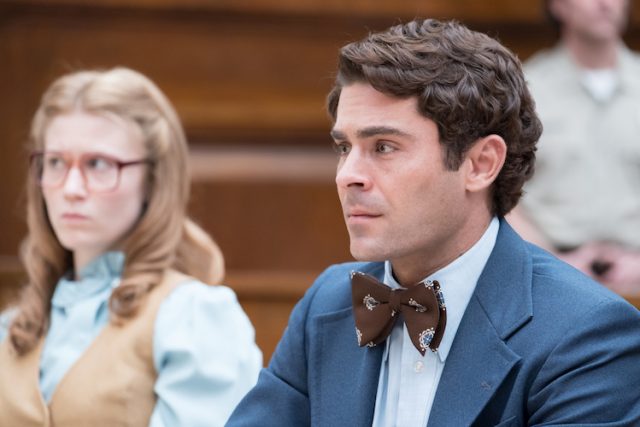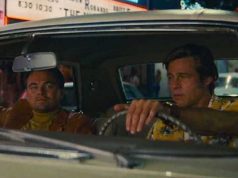
[On Netflix.] ••• It was inevitable that a former teen star from the Disney Channel would eventually play a serial killer, if not actually become one. Zac Efron, whose breakout performance in “High School Musical” was more than 13 years ago, is good as Ted Bundy in “Extremely Wicked, Shockingly Evil and Vile,” but the movie (whose title comes from the judge’s sentencing remarks) is problematic in its bungling of a crucial question: How do you make a movie about Ted Bundy — whose charm and handsomeness were keys to his success — without lionizing him?
The film is told largely from the point of view of Bundy’s girlfriend, Elizabeth Kendell (played by Lily Collins), who believed in his innocence for many years and knew him to be sweet, affectionate, and good with kids. We see the aftermath of some of Ted’s crimes, but never the acts themselves, only Ted’s (rather convincing) insistence that he didn’t do them and his subsequent efforts to escape from police custody, often by wooing nearby females. Going only by what the movie shows us, Ted could be innocent … except that he’s Ted Bundy, and we know he isn’t.
Curiously, the film initially goes out of its way not to reveal that he is Ted Bundy. When he meets Liz at a bar in Seattle in 1969 and she says, “I don’t even know your name,” the scene cuts away before he answers. When he runs into an old acquaintance, she says, “Well, hello, stranger!” Nobody calls him “Ted” until 25 minutes in, and it’s another 15 before we catch his last name. For a while I wondered if the movie wasn’t going to tell us who we were dealing with until the very end, to let us think he’s just some guy, maybe even a falsely accused one, before hitting us with the gut-wrenching truth. Not only was this a fascinating idea, it was plausible: The director is Joe Berlinger, a documentarian who has made movies about actual falsely accused prisoners (and “Book of Shadows: Blair Witch 2,” but we all make mistakes).
But no, like I said, he’s positively ID’d at around the 40-minute mark as Ted Bundy, the cruel, vicious psychopath who eventually confessed to 30 murders and was probably responsible for more. The problem is that Berlinger (working from a screenplay by first-timer Michael Werwie) recounts Bundy’s brazen encounters with the law as though Ted were nothing more than a lovable rogue, like he’s the Dukes of Hazzard tryin’ to get away from ol’ Roscoe. The film does nothing to show what made Bundy tick, glamorizing him instead. A title card at the end listing the known victims, meant to show respect, does the opposite: We just watched a movie about what a nutty, handsome character he was, and now you want us to be somber and mournful about the victims you never showed?
The use of real TV news footage mixed with recreations, while skillfully done, makes me uneasy as well. This all happened relatively recently. The survivors and the families of the victims are still among us, probably shaking their heads at the distastefulness of it all. Since the film doesn’t shed any light on Bundy anyway, it would have been better if it had used his story as the blueprint for a movie about a fictional killer, one that wouldn’t be fraught with real-world implications. Movies don’t exist in a vacuum, and filmmakers shouldn’t be flippant when they turn evil deeds into entertainment.
C (1 hr., 50 min.; )





